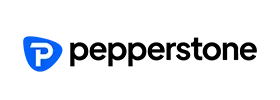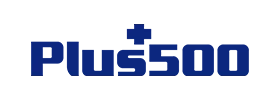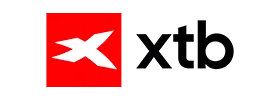For centuries, traders across the globe have bought and sold goods such as grains, metals, energy resources, and other types of commodities. Today’s traders can participate in this market by using online brokers to capitalize on the price fluctuations of commodities, and they are presented with ample opportunity for high returns. Of course, this type of trading also comes with its own set of challenges, which is why going with the right broker is of crucial importance for any aspiring commodity trader.
Below you can find a list with the best brokers for trading commodities:
Top 6 Commodity Trading Brokers
-
FP Markets
- Australia and CySEC regulated broker
- MT4/MT5, TradingView, Ctrader, Iress
- EUR/USD spread from 0.0 pips
Trading InstrumentsDeposit Methods- Commodity CFDs
- Crypto CFDs
- Energy CFDs
- Forex CFDs
- Index CFDs
- Metal CFDs
- Stock CFDs
-
Axi
- Raw spreads start from 0.0 pips
- Offers order execution faster than standard ECN model
- Axi Select Funded Trader Program offers funding up to $1 million
Trading InstrumentsDeposit Methods- Commodity CFDs
- Crypto CFDs
- Forex CFDs
- Index CFDs
- Metal CFDs
- Stock CFDs
-
Pepperstone
- Australia and CySEC regulated broker
- MT4/MT5, TradingView, Ctrader, Iress
- EUR/USD spread from 0.0 pips
Trading InstrumentsDeposit Methods- Commodity CFDs
- Crypto CFDs
- Energy CFDs
- Forex CFDs
- Index CFDs
- Metal CFDs
- Stock CFDs
-
Plus500
- Multi-Level Regulated Broker
- Proprietary trading platforms
- Easy to use mobile app
Trading InstrumentsDeposit Methods- Commodity CFDs
- Crypto CFDs
- Energy CFDs
- ETF CFDs
- Forex CFDs
- Index CFDs
- Metal CFDs
- Share CFDs
- Stock CFDs
- US Stock CFDs
-
XTB
- XTB is a publicly traded company regulated by FCA and CySEC
- XTB's proprietary mobile app enables traders to trade from anywhere
- Commission-free stock trading with no platform fees and direct access to thousands of shares
Trading InstrumentsDeposit Methods- Commodity CFDs
- Crypto CFDs
- Energy CFDs
- ETF CFDs
- Forex CFDs
- Index CFDs
- Metal CFDs
- Share CFDs
- Stock CFDs
- US Stock CFDs
-
ActivTrades
- Winner of 20+ Global Awards
- MT4/MT5, TradingView
- Leverage up to 1:400
Trading InstrumentsDeposit Methods- Bonds CFDs
- Commodity CFDs
- Crypto CFDs
- ETF CFDs
- Forex CFDs
- Index CFDs
- Share CFDs
Our 8-step guide to choosing a forex broker
- Verify regulation and authorisation (e.g., FCA, ASIC).
- Check trading costs: spreads, commissions, swaps.
- Compare execution quality: slippage, fills, order types.
- Check platforms and tools: MT4/MT5, cTrader, TradingView.
- Ensure risk controls: stop-loss, guaranteed stops, negative balance protection.
- Review funding and withdrawals: local options, fees, processing times.
- Evaluate research, education, and alerts.
- Prioritise security and support: segregated client funds, two-factor authentication, support hours.
Brokers Compared by Spread
Brokers Deposit Method Comparison
| Brand | Minimum deposit | |
|---|---|---|
| FP Markets | $50 (AU$100) | |
| Axi | $0 | |
| Pepperstone | $0 | |
| Plus500 | $100 | |
| XTB | $250 | |
| ActivTrades | $0 |
The Best Commodity Brokers by Regulator
| Brand | Maximum leverage | |
|---|---|---|
| FP Markets | 1:500 (CySEC | Pro Account), 1:30 (ASIC | Retail Account), 1:30 (CySEC | Retail Account), 1:500 (FSAS | Retail Account) | |
| Axi | 1:500 (Elite Account), 1:400 (Pro Account), 1:30 (ASIC | Retail Account), 1:30 (CySEC | Retail Account), 1:30 (DFSA | Retail Account), 1:30 (FCA | Retail Account), 1:500 (SVGFSA) | |
| Pepperstone | 1:500 (CySEC | Pro Account), 1:500 (SCB | Pro Account), 1:30 (ASIC | Retail Account), 1:30 (CySEC | Retail Account), 1:30 (DFSA | Retail Account), 1:30 (FCA | Retail Account), 1:200 (SCB | Retail Account) | |
| Plus500 | 1:300 (Pro Account), 1:30 (ASIC | Retail Account), 1:30 (BaFin | Retail Account), 1:30 (CySEC | Retail Account), 1:30 (FCA | Retail Account), 1:30 (FMA | Retail Account), 1:30 (SFSA | Retail Account), 1:30 (DFSA), 1:300 (FSAS), 1:20 (MAS), 1:300 (SCB) | |
| XTB | 1:200 (CySEC | Pro Account), 1:30 (CySEC | Retail Account), 1:30 (FCA | Retail Account), 1:500 (IFSC | Retail Account) | |
| ActivTrades | 1:400 (CMVM | Pro Account), 1:30 (CMVM | Retail Account), 1:1000 (FSC), 1:200 (SCB) |
Commodity Brokers Platform Availability
| Brand | FX pairs to trade | |
|---|---|---|
| FP Markets | cTrader, MetaTrader 4, MetaTrader 5, TradingView | |
| Axi | MetaTrader 4 | |
| Pepperstone | MetaTrader 4, MetaTrader 5, Proprietary Mobile, Proprietary Web | |
| Plus500 | Proprietary Mobile, Proprietary Web | |
| XTB | Proprietary | |
| ActivTrades | MetaTrader 4, MetaTrader 5, Proprietary Web, TradingView |
Comprehensive Comparison of the Best Commodity Brokers
The Commodity Market
Commodity trading is a complex and multifaceted market that involves the exchange of physical goods or raw materials, and commodities are split into two major categories:.
- Hard Commodities: This term refers to natural resources that are extracted or mined from the earth. Examples include metals like gold and copper, energy resources, and precious stones. These commodities are often used as inputs in the production of goods and are highly valued for their durability and versatility.
- Soft Commodities: These are agricultural products or livestock that are grown or raised for human consumption or use. Soft commodities are often perishable. Soft commodities include products such as coffee, sugar, and wheat, which are widely traded on global markets and are used in the production of food, beverages, and other consumer goods.
Gold is one of the most prominent commodities when it comes to online trading. Dubbed a “safe haven” by many participants in the commodity market, it is often used as a hedge against inflation, market volatility, and economic uncertainty, making it an attractive asset for diversifying investment portfolios. Crude oil is another commodity that attracts traders. It is a crucial component of the global economy and suitable for long-term investing and short-term speculation alike, although as is the case with all commodities, a deep understanding of the market dynamics, as well as the ability to manage risk, is key to making informed decisions.
Trading Commodities
Supply and demand plays a vital role in how this asset class is traded, and prices are further influenced by factors such as political events and the weather. For example, a drought in a major agricultural region may result in a shortage of crops, causing prices to rise. Similarly, a disruption to oil supplies can lead to an increase in energy prices.
As for how you can trade commodities, the most popular options include exchange-traded funds (ETFs), futures, and contracts for difference (CFDs). Exposure to the commodity marking can also be achieved via the purchasing of stocks, namely of companies whose businesses revolve around commodities. Trading is facilitated by a wide range of brokers and online brokers that boast a range of futures. Some brokers specialize in specific types of commodities, such as metals, while others offer a broader range of trading options.
-
Commodity CFDs
If you are looking to trade commodities without true ownership, contracts for difference serve as one of the most popular ways to do just that. A CFD is a contract between two parties to exchange the difference in the value of an asset from the time the contract is opened to when it’s closed, as opposed to purchasing a commodity asset outright. CFDs are available on a vast array of brokers and platforms, making them relatively accessible to the average commodity trader. However, as commodity CFDs are considered a risky instrument type, effective risk management is needed when trading CFDs.
-
Commodity ETFs
Еxchange-traded funds allow investors to buy and sell commodities like stocks, offering a flexible and liquid way to access the markets. Commodity ETFs can be used to diversify portfolios, hedge against inflation, and capitalize on price movements. They can also be used to gain exposure to a specific commodity or a broad basket of commodities. They are listed on major exchanges, making it easy to buy and sell them, and they are subject to strict regulatory requirements.
-
Commodity Futures
A commodity futures contract is an agreement to buy or sell a specific quantity of a commodity at a predetermined price on a specific date in the future. While they resemble CFDs, the expiration date of futures contracts serves as a core difference between the two. Futures enjoy widespread availability at brokers that offer commodity trading.
Trading Commodities With Leverage
Depending on what type of commodity trading you decide to engage in, leverage may play a key role in how you navigate the commodity market. By trading with leverage, commodity enthusiasts can control a position larger than their capital based on the leverage ratio they have decided to use. For example, if you decide to trade a given commodity instrument with a leverage ratio of 1:10, this means if you were to control a $100,000 position, you would need $10,000 of your own funds. The remaining 90% of the total trade value would be provided by the broker.
Essentially, leverage can serve as a valuable tool for commodity traders looking to amplify their potential returns. Traders who are interested in trading commodities with leverage tend to gravitate towards contracts for difference (CFDs).
If you decide to delve into the commodity market by using leverage, keep in mind that there are risks involved. Due to commodity markets’ volatile nature, price fluctuations can be frequent and difficult to predict. This, combined with the large size of leveraged positions, means that you can quickly lose more money than you had staked initially.
It bears noting that due to the caveats mentioned above, some regulators have made the decision to restrict the maximum leverage retail traders can trade commodity CFDs with. Brokers that operate in Europe, for instance, cannot allow retail clients to trade with leverage of over 1:10 unless the asset in question is gold, which has a cap of 1:20.
Commodity Trading Costs
Engaging in commodity trading involves various expenses that can impact an investor’s overall profitability. Two primary costs are the spread and commission. The spread refers to the difference between the buy and sell price of a given commodity, and it is one of the most essential aspects of most trading markets. Due to the vast range of instruments that encompass the commodity market, spreads may vary greatly depending on the asset. Gold spreads, for instance, can fall under 1 pip, while the spreads of commodities like lumber may easily exceed 10 pips.
Often, brokers will offer tighter spreads to users who pay commissions. These fees are charged for the execution of trades and can vary greatly from broker to broker. Keep in mind that paying a commission does not necessarily mean that the spreads will definitely fall to 0 pips. Instead, they will simply be lower than what users who do not pay commissions can access.
Another type of trading fee is charged when you hold short-term CFD positions overnight. Aptly dubbed the “overnight fee”, this is a cost you will encounter at most commodity brokers.
There are potential costs that are not directly tied to trading that should be considered. Some brokers attach fees to deposits and cashouts, although the former is not common. Moreover, make sure to properly close your account should you decide to stop using a specific broker, as plenty of them charge monthly inactivity fees if a user has not done any trading activity for a certain period of time.
Commodity Trading Platforms
Brokers that include commodities in their instrument libraries tend to offer either third-party platforms or software that is proprietary. Some of the most well-established brokers have opted to do the former, and the following are some of the platforms you might be able to use to trade commodities. MetaTrader 4 is a widely used platform that provides a comprehensive suite of technical analysis tools, allowing traders to identify trends, patterns, and potential trading opportunities. This straightforward platform is the favorite of many, and its successor, MT5, has also proven suitable for commodity trading.
Another popular platform is TradingView, which allows users to create and share their own custom indicators and strategies, making it a favorite among traders who value community-driven insights and collaboration. For advanced traders, cTrader is also a popular choice. This platform is designed specifically for trading commodities and other financial instruments, offering a range of advanced features such as automated trading and strategy backtesting.
FAQs
Can I trade commodities on the go?
Yes, the vast majority of brokers provide their clients with mobile-friendly platforms to use while they are away from their computers. These typically come in the form of dedicated mobile applications. Moreover, staples like MT4 and other popular platforms also have mobile clients.
What types of commodities can be traded with a broker?
The selection of commodities assets can vary from broker to broker. Most will typically offer at least a selection of hard and soft commodities, while others might focus solely on metals. Therefore, it is important to check a broker’s product range before you register.
What is the maximum leverage I can use when trading commodity CFDs?
This is reliant on your country of residence. As established, CFDs on commodities have leverage limits of 1:10 or 1:20 for traders who reside in European countries. The rules are the same in Australia. Some regulators are far more lenient, and if you trade at a broker licensed by the FSA (Seychelles), you might be able to trade with leverage of up to 1:100 or even 1:200.
Is a demo account a viable option if I do not have much experience trading commodities?
Yes, going with a demo account is an excellent way to begin practicing commodity trading if you are new to commodities or trading in general. Demo accounts come with demo funds, meaning you will be able to practice and test out different trading strategies in real market conditions without losing actual money.
Can I trade commodities with a broker using automated trading?
Yes, many commodity brokers offer automated trading platforms that allow traders to execute trades automatically based on predefined criteria. Usually, brokers will be open about their automated trading capabilities and provide details on a dedicated page, but you can also get in touch with a representative of the broker’s support team and ask them for clarification if not enough information is offered.
Why You Should Trust RationalFX
When it comes to making informed decisions about forex brokers, it's essential to rely on trustworthy sources. RationalFX, a company with over 20 years of experience since its founding in 2005, has established itself as a credible authority in the industry. With an impressive collection of over 2500 reviews on Trustpilot, boasting a score of 4.2, it's clear that Rational FX has built a reputation for providing reliable and unbiased information.
What sets Rational FX apart is its rigorous evaluation process, which considers over 30 different criteria when selecting forex brokers. This comprehensive approach ensures that every aspect of a broker's service is taken in consideration, including regulation, forex spreads, trading platforms, deposit methods, and reputation. With its wealth of experience, transparent review process, and outstanding customer feedback, Rational FX is a trusted source for anyone seeking reliable information on forex brokers. You can reach us via e-mail at feedback@rationalfx.com or contact us through our social media accounts here: Facebook, YouTube, or leave a feedback here.










